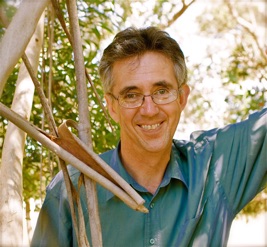Growing up can be a mixed bag. As psychotherapist Steve Biddulph points out in his latest book Fully Human, our lives as kids can have a big influence on our health as adults.
Steve himself started life in 1950s Yorkshire, coming to Australia with his parents in the early 60s. England in those decades, he says, was ‘awash with booze’.
Australia tried to copy the mother country in many ways, but excelled when it came to drinking. Along with New Zealand we had the infamous six o’clock swill, where pubs shut at 6pm and men raced to get as drunk as possible in the hour beforehand.
It’s also telling that the most prescribed drug in the Western world in the 1960s was Valium.
Steve explains that this need to get numb was in response to the trauma of two world wars, the Depression, often miserable working conditions, and millions of refugees fleeing their home countries in search of a new life.
Further back, many of our relatives survived treacherous boat trips to get to Australia, then lived the harshest of pioneering lives.
We were born into those times or their legacy.
The same was happening across the Pacific. In the 1990s a big American insurance company called Kaiser Permanente surveyed 17,000 of its members with 10 questions that reflected Adverse Childhood Experiences (ACEs).
KP’s membership was middle-class, educated, financially secure, mostly white, average age 57.
The adverse experiences in question were emotional, physical and sexual abuse, physical and emotional neglect, divorce/loss of a parent, family violence, and parental alcoholism or addiction, mental illness or incarceration.
While it sounds like a dark list, the results showed that trauma was remarkably common even among the successful middle class (one in six answered yes to at least four of the 10 questions).
When members’ survey results were correlated with their health records, there was a startling connection.
The more ACEs we’re exposed to, the more risk we have of developing chronic conditions such as stroke, heart disease, respiratory disease, diabetes and cancer. There’s also a major link to obesity and mental health issues.
Moreover, even if our own family life seemed relatively benign, this kind of adversity shaped the culture we were raised in.
Unwittingly and inevitably we inherited at least some the thinking and behaviour of the times.
Here are a few possible examples:
Some of us who never got to be children grew up being over-responsible and needing to take care of everything around us.
That probably means we’re eternally busy, which can be exhausting and stressful, but in order to do it all we often sacrifice our own diet, exercise, sleep and relaxation.
A sign of being over-responsible might be that when we get a chunk of time to ourselves we do something fun and frivolous like cleaning the house!
If that’s you, consider dipping into Libby Weaver’s book Rushing Woman’s Syndrome – the impact of a never-ending to-do list on your health.
Many of us are also adept at sucking up hard times and getting on with it. And while that might be a useful survival strategy, a healthy life involves way more than survival.
If we grew up around messages like ‘children should be seen and not heard’ or the idea that too much attention would spoil us, we might avoid taking the best care of ourselves because that would be indulgent and unnecessary.
Steve tells the story of his mum’s 70th birthday which was celebrated with a gathering at a reception centre, the front of which was hung with a banner saying I Don’t Want Any Fuss.
Many families of our era also exhibited a lack of touch and affection. Yet touch is life affirming, calming and validating. He notes that millions of people eat so-called comfort foods as a substitute for touch.
I could go on but hopefully something resonates already. The important question is where we go with this.
A good place to start is noticing the way you talk to yourself. If that voice is critical, endlessly telling you you’re not doing enough, your job is to turn it into your greatest ally, full of praise, reminding you that you’re more than good enough and encouraging you to take time for yourself.
Over-responsible types need to recognise that the world won’t fall over if you’re not holding it up. Try stepping back and letting others do what you automatically take on.
If your daughter has followed in your take-care-of-everything-and-everyone-else-first footsteps it could be time for a mother-daughter chat about the impacts of that and alternative ways of doing things.
If you sacrifice things that would benefit your own health in order to attend to others (hello Grandma) consider how everyone’s needs can be met without your sacrifice.
If you avoid lavishing too much care on yourself, do something you would genuinely enjoy that would normally feel way too indulgent.
If you rarely do things for fun or relaxation, seek out those experiences.
If you’re fiercely independent and not used to asking for help, try asking a small favour. Or a big one.
And if touch is missing in your life, even if you live alone, look for ways to experience more of it.
Finally, reading Steve’s book would also be invaluable. Fully Human — a new way of using your mind, by Steve Biddulph (2021)
Photo Source: stevebiddulph.com

